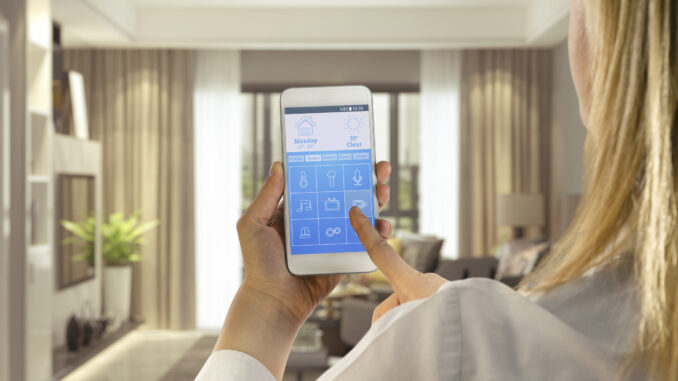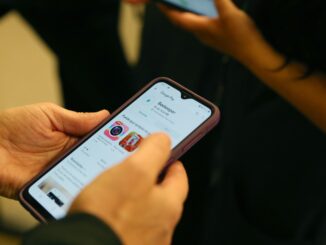
By Andrada Paraschiv, Head of Hospitality, Beekeeper - 5.19.2020
The world is changing, and so is the global hospitality environment. Due to the COVID-19 pandemic, a new safety culture is emerging that requires the hotel workforce to engage with guests, management, and each other digitally to honor social distancing mandates and help stop virus spread.
It’s hard to imagine that we once had limited options for exchanging information. Try explaining to a Millennial that before the Internet and smartphones the only way to talk to someone was in person or by dialing an analog telephone. Today we have limitless options to transfer information from one person to another, whether it’s by text, Skype, Zoom, social media post, digital app, or live media stream, and reliance on these digital channels has grown exponentially among consumers, especially in this time of quarantine and social unrest.
Traditionally, hospitality has been a conservative industry when it comes to technology; more emphasis has been placed on face-to-face interactions between staff and guests. COVID-19, however, is changing all that. Some of the larger chains that were early adopters of mobile keys, for example, now expect to see slow adoption rates soar because digital access tools are enabling travelers to completely bypass the front desk and avoid contact with other guests.
Travelers simply notify the hotel by SMS text message when they are in route to the property. Front desk attendants then check guests in remotely and send digital room keys to their smartphones. Hotel services information can also be accessed via mobile app eliminating the need to speak directly with a Concierge or front desk attendant and forgotten amenities can be requested by just saying “Alexa, ask housekeeping to bring a toothbrush to my room.”
Digitalization is cultivating a high tech – not high touch – stay where travelers control their experiences and room environments without risking social interaction. As the hotel industry prepares for recovery, operators will also need to leverage digital communication channels to connect with employees and share procedural changes with everyone working and those yet to return. New cleaning processes, social distancing parameters, and guest interaction practices will need to be explained and enforced. Managing by walking around will slow – if not stop – and employee movement around the property will be curtailed, at least until a vaccine is found.
Depending on the location of the hotel and the pandemic’s infiltration in the market, some hotels have hired infectious disease specialists to ensure proper procedures are in place to stop the spread of the disease on premises. Others have invested in thermal cameras to detect elevated body temperatures and installed plexiglass in public areas to separate staff from guests. These measures, along with keeping rooms vacant for 24 hours after a guest checks out, come with a hefty price tag. With occupancies at an all-time low and RevPAR dwindling, operators may not see profits return for some time. Reducing payroll expenses and overhead while adding automation will prove helpful in the short term, and possibly the long term too.
Digitalization Means Doing More with Less
Because 80 percent of frontline hotel workers don’t have a company email address, it is near impossible for them to receive employment updates. Operational processes are changing frequently and working skeleton crews are being given expanded roles. Therefore, it’s extremely important that communication reaches everyone as quickly as possible to carry out procedural plans.
Digitalizing the workplace ensures that every employee — regardless of their physical location or job description — is connected to the organization. It also provides audit trail capabilities to identify who responded to content streams and who did not. Management can confirm that communication campaigns were launched, and they can measure effectiveness.
Digitalizing employee communications instantly conveys protocol changes, keeps up morale, and emphasizes the importance of following safety guidelines. Hotel managers do not have the time to call or text every employee and follow up with them to make sure they are receiving relevant information and instructions. Their focus instead should be on bringing heads back to beds and changing their safety protocols while minimizing costs. Communication tools like Beekeeper canfree up managers to focus on generating demand while simultaneously keeping guests and employees safe.
No matter what new protocols hoteliers put into place, they will only be as good as their implementation — and it’s the hotel’s employees who will be bringing these rules to life. Digitalization makes it easier for workers to articulate operational safety messaging and live up to it. It’s been said that an individual must hear the same message up to seven times before it registers.
An employee communication platform that sends digital training videos, surveys and quizzes, safety tips and reminders, and informational updates to all employees in real time will more quickly prepare all teams for reopening and ramping up. Let’s also not forget the critical, yet often overlooked, multilingual functionality that digitalization brings to workers whose first language is not English.
Digitalization Drives Emotional Readiness
Until a vaccine is developed, we are asking people to return to work knowing conditions are unsafe and that they can potentially get sick. How we engage and treat frontline workers through this crisis will impact how ready they will be to come back and put in the effort. It will be hard work — almost like learning a new job every week. Hours will be reduced, which means less money per paycheck, and if they become ill, workers may lose their income altogether. Some people may just decide hospitality is not for them anymore.
The last thing the industry can afford is to have workers decide that a career in hospitality just isn’t worth the risk. That’s why it’s imperative that hotel companies use as many digital tools and channels as possible to communicate how deeply they care about employee and guest safety. We need to make teams emotionally ready to return to work. Keep furloughed employees engaged and connected with the rest of the team and what is happening at the hotel.
When they come back to work, make sure to recognize your teams frequently for their hard work in front of their peers using electronic channels), and possibly even rewarding them financially for their dedication. However, with unemployment insurance paying out generous wages today, even the most empathetic employers may find it difficult to get workers to return. Today digitalization is the best means for management to connect with and extend incentives to its teams in hopes of building loyalty and reducing turnover.
Digitalization Leads to Shared Learning
Another benefit of workplace digitalization is the ability to share best practices across an enterprise. Rather than reinventing the wheel at each property, hoteliers can disclose what works or doesn’t work from an employee retention standpoint or to put guests’ minds at ease that a hotel is COVID-19 clean.
The best results are achieved when educational messaging is consistently disseminated to all departments and across all guest touch points, and when management follows through to ensure that new procedures are being carried out. Any misstep can potentially result in negative online reviews – and no hotel can afford that today.
No one knows for sure what the new normal will be like. All we know is there is a high level of uncertainty, many moving parts, lots of changing protocols, a growing focus on reducing costs. To deal with all this instability, hoteliers need to embrace the rapidly accelerating digitalization trend in their interaction with guests and employees. Necessity is the mother of invention, and today the future of hospitality depends on digitalization.
 Andrada Paraschiv is the head of Hospitality for Beekeeper, a mobile-first communication platform built for frontline employees that reaches every shift, location, and language through real-time messaging, targeted streams, and automated workflows.”
Andrada Paraschiv is the head of Hospitality for Beekeeper, a mobile-first communication platform built for frontline employees that reaches every shift, location, and language through real-time messaging, targeted streams, and automated workflows.”
Are you an industry thought leader with a point of view on hotel technology that you would like to share with our readers? If so, we invite you to review our editorial guidelines and submit your article for publishing consideration.



